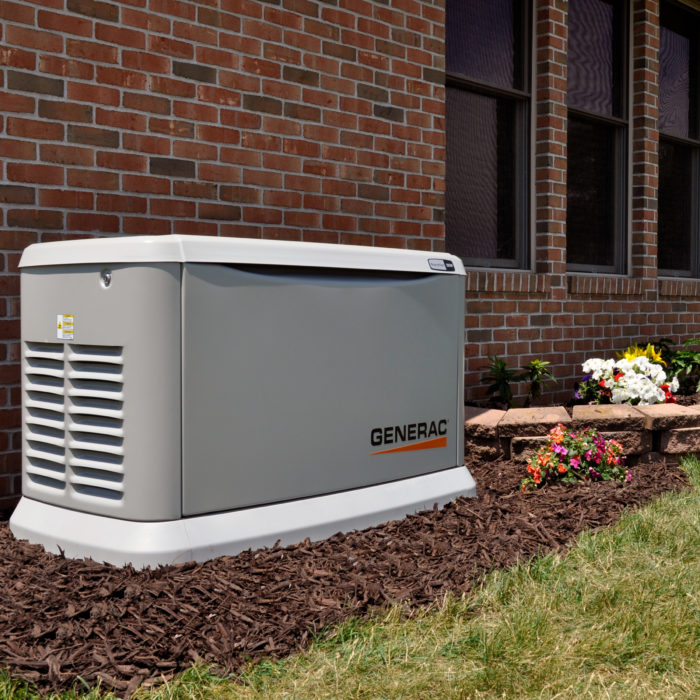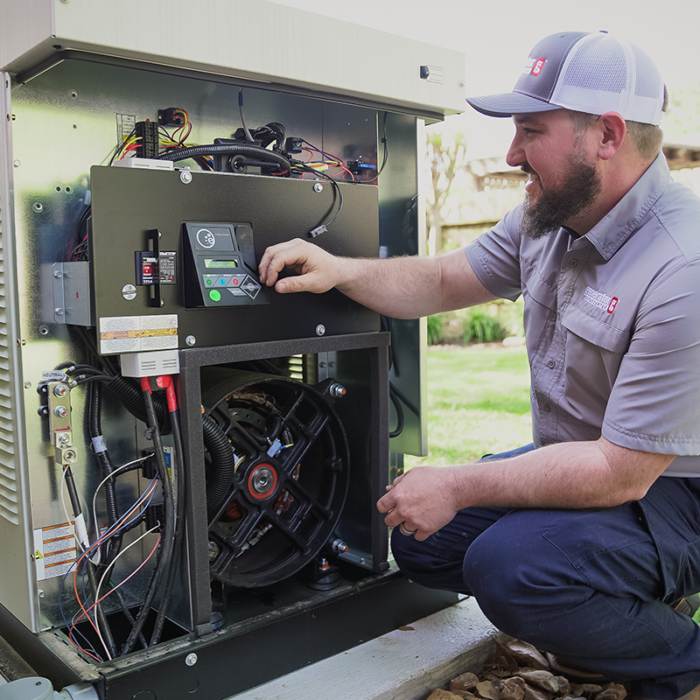Most power cuts are short-lived. According to data from the US Energy Information Administration, the average electricity customer must endure four hours per year without mains supply.
But, for some, outages are much longer, prompting them to wonder how long Generac generators can run nonstop. What if they have to keep going for days or weeks before the utility supplier restores power?
In this post, Generator Supercenter takes a look at how long a Generac generator can realistically run nonstop and how it might affect your purchasing decisions.
Generac Generator Run Times
So long as the generator is in a good state of repair, it should run as long as its fuel supply lasts, just like a car. That means that the running time is proportional to the amount of diesel or gas you can feed to it.
If you have a gas generator and receive natural gas through mains pipes to your home, you may be able to supply your Generac with fuel indefinitely. Gas coming from the mains continually replenishes the fuel that your generator uses, so the unit may be able to keep going for weeks at a time, so long as there are no mechanical faults.
If your Generac uses liquid propane stored in a tank, running times are not indefinite but still considerable. Most standard tanks contain anywhere from 250 to 1,000 gallons. Typical home-use will burn through around 2 to 3 gallons of propane an hour. So a 1,000-gallon tank will see you through around two weeks of outages.
Diesel tanks for home generators come in a variety of sizes. Sub-base tanks usually store less than 1,000 gallons of fuel, while underground storage tanks have options for more than 1,000 gallons. You can also get above-ground tanks, though these usually require planning permission and do not come in such high capacities.
A generator producing 10 kW at around half load will consume around 0.35 gallons of diesel per hour, implying that a 1,000-gallon tank will last approximately 17 weeks.
Generac Generator Maintenance Issues
Like car engines, however, whole-home generators require regular maintenance to keep them in good condition. As with any machinery with moving parts, wear and tear can be significant.
The best way to fight depreciation is to use a lubricant to reduce friction between all of the generator’s moving parts. Generac recommends replacing the oil in your machinery at least every fifty hours of cumulative usage. That translates to once every couple of days of continuous use.
Portable And Standby Generators
Generac generators fall into two categories: portable and standby. And this determines how long they can supply power.
Portable units are more transportable. Usually, event managers hire them for concerts or festivals, but homeowners buy them too. These generators require you to top them up with fuel during use continually, so they can only supply power for a limited time.
By contrast, standby generators hook directly into mains or fixed fuel sources on your property. For instance, Generac installers will connect your unit to main natural gas pipes supplying your home. And as discussed above, this feature means that they can theoretically provide power indefinitely.
Generac Generator Wattage Considerations
How long your Generac generator runs non-stop also depends on your home’s wattage requirements. So far, we have assumed average consumption of 900 kW/h per month or roughly 30 kW/h per day for the average US home. But you might require more than this, depending on your peak usage.
Most whole-home generators offer around 5,500 watts. But some larger homes can see peak power demands exceeding 10,000 watts – especially if multiple people decide to use showers at the same time. Thus, you may require models able to accommodate much higher demand.
Here are some of the wattage requirements of the heaviest usage appliances:
- Ovens: 2200 W
- Coffee makers: 700W to 1400 W
- Refrigerators: 150 to 400 W
- Microwaves: 950 W to 1750 W
- Dishwashers: 1200 W to 1500 W
- Power showers: 1500 W to 2500 W
Other appliances, such as flatscreen TVs and laptops, use comparatively little energy. Average usage for these appliances ranges from around 50 W to 130 W.
Clearly, the more power you use, the shorter time your Generac generator will run if you have a finite fuel supply. Wattage considerations do not matter if you connect your generator to the mains. However, exceeding your unit’s maximum rated power output is dangerous and may shorten its life.





